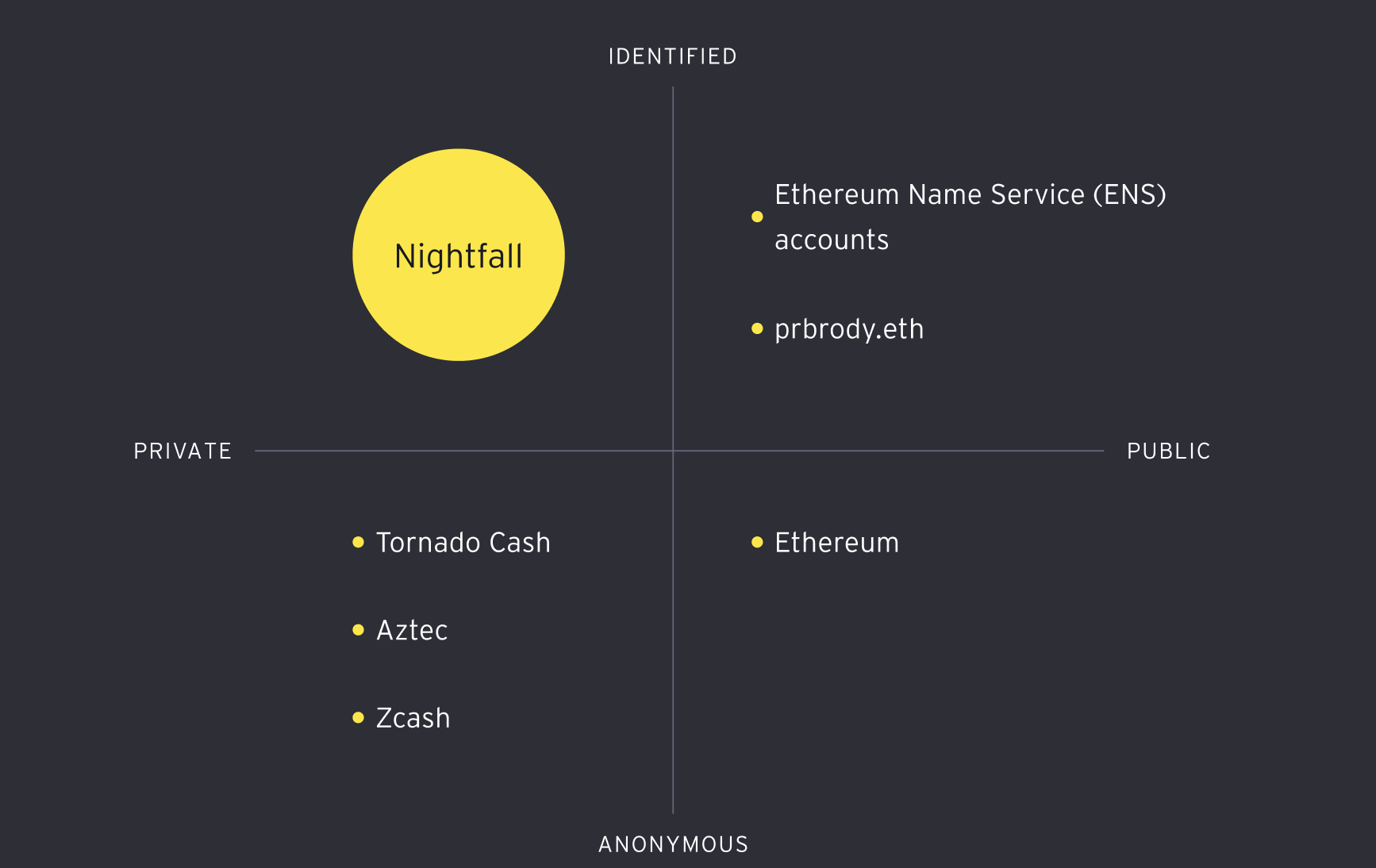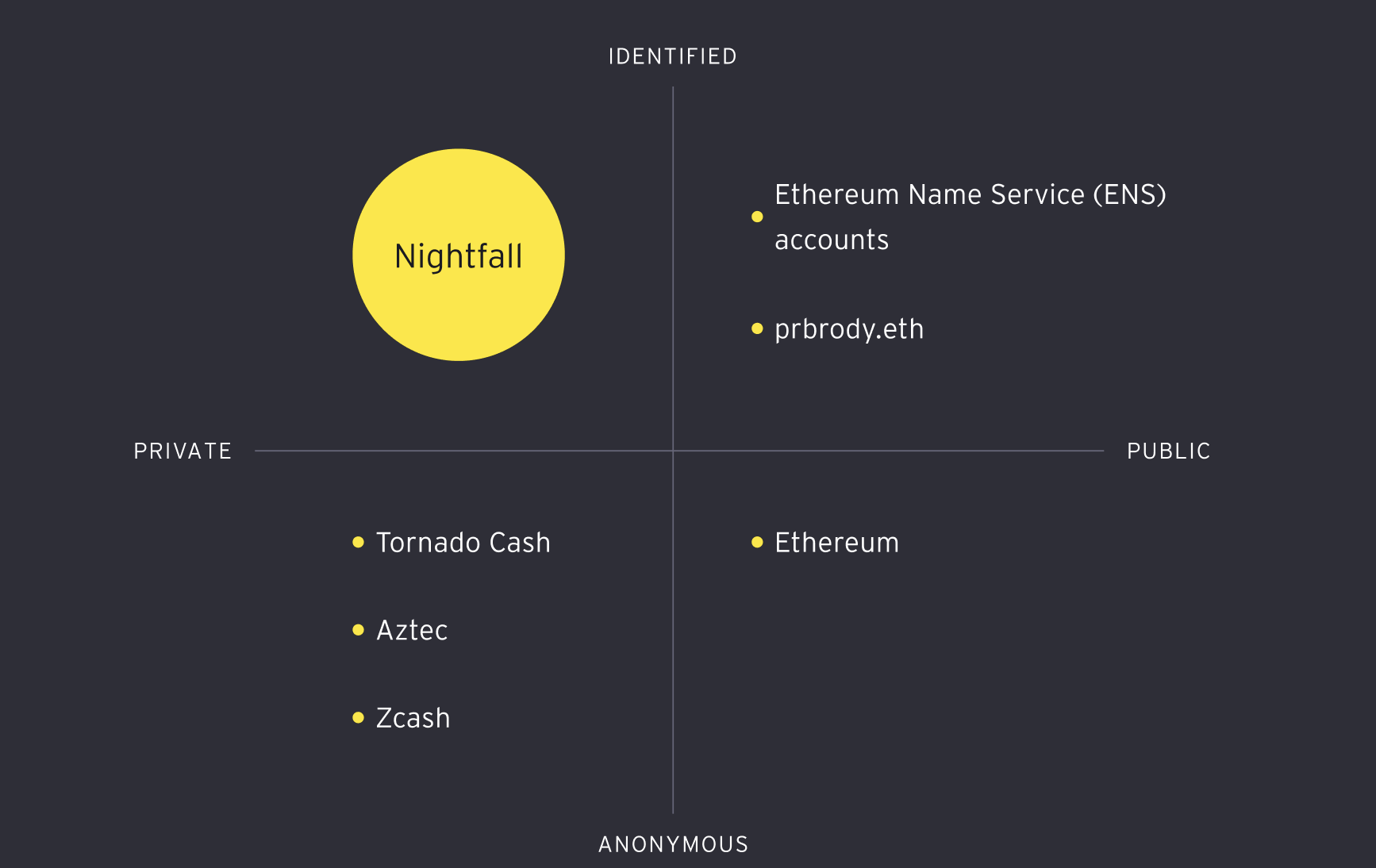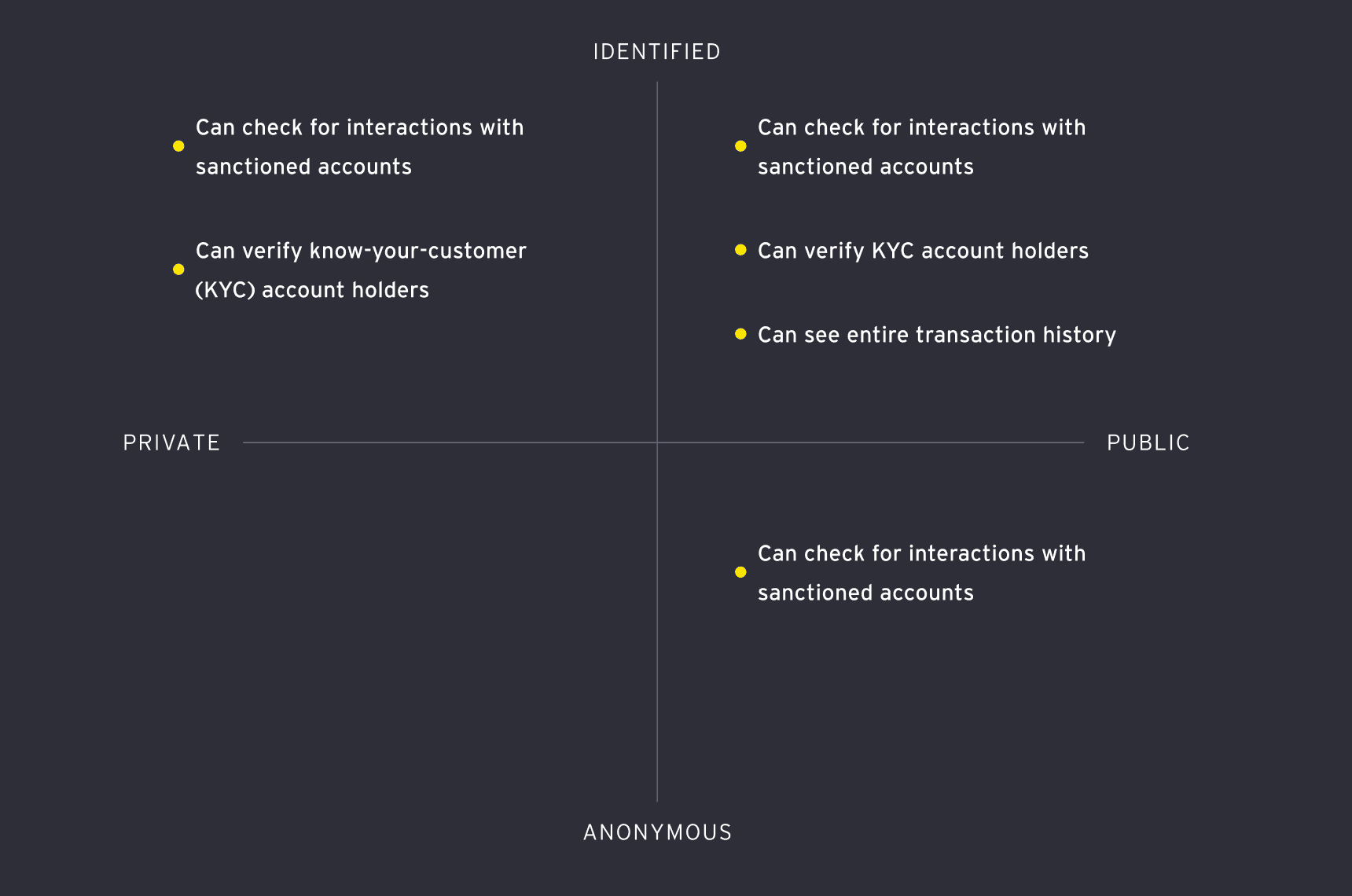Blockchain
Privacy Technology
Blockchains have one defining capability that sets them apart: they can execute transactions and business logic across a network without relying on a central authority to validate or complete the process.
Public blockchain allows anyone to participate in the network (Reading the ledger or writing to it). Which means all transactions and smart-contract code are visible. For many organisations, this level of transparency creates significant limitations for business-to-business use.
Private blockchains, by contrast, offer greater privacy and control but sacrifice decentralisation. A single entity, or a consortium, ultimately governs the network and determines the access to the private chain.
Nightfall occupies a unique space in the Ethereum ecosystem


Why Privacy Matters
For business-to-business interactions, commercial confidentiality is normally essential. When we consider blockchain privacy, it helps to look at two dimensions: the anonymity of the parties involved and the privacy of the transaction itself. These can be mapped on a 2×2 matrix, with anonymity ranging from Anonymous to Identified and transaction privacy ranging from Private to Public. Each position provides different levels of confidence in a counterparty’s credentials and different abilities to protect sensitive commercial information.
At the same time, making all business information publicly available is rarely acceptable, but fully private, completely anonymous transactions are usually incompatible with regulatory obligations, risk management and basic commercial trust. The top-left quadrant of the matrix offers the best balance of privacy and assurance for most enterprise use cases. That’s the zone targeted by Nightfall’s privacy technology.

Getting Privacy Right
- True blockchain privacy is difficult to achieve. Blockchain technology enables protection against data manipulation and censorship, and therefore increases data security. However, this often comes at the expense of privacy, as records are stored in a decentralized, transparent, and immutable way.
- Significant research has gone into addressing blockchain privacy in recent years, and with rapid advancement of zero-knowledge proof technologies, that research is now starting to deliver practical, effective solutions.
Privacy Technology
EY has released two privacy applications, Nightfall and Starlight, into the public domain. Both use zero-knowledge proofs to enable blockchain privacy across a range of use cases.
Nightfall and Starlight*
Reimagining privacy on public blockchain with Nightfall and Starlight:
Nightfall is a ZKZK Roll-Up that helps enable private transactions on the public Ethereum and EVM-compatible blockchains. A private transfer using Nightfall can potentially reduce the cost of ERC20 tokens by a factor of 3.5x.
Knowing who you are dealing with is important, especially when transactions are private. Therefore, Nightfall includes a sophisticated decentralised permissioning component, to ensure that users have undergone an appropriate level of scrutiny:
EY upgrades Nightfall, a zero-knowledge roll-up enabling private transactions on the Ethereum blockchain | EY - Global
The source code for Nightfall version 4 and supporting tools are in the public domain and are available on Github
The ability to make private payments is a fundamental business capability, but sometimes more sophisticated and bespoke business logic is required. However, writing blockchain applications that use zero-knowledge privacy is difficult, and people with appropriate skills are in short supply. Starlight was conceived as the solution to this problem. It enables a Solidity smart contract to be marked up to indicate which variables should be private, and in what way, and then the marked-up contract can be compiled into a full ZKP-enabled blockchain application using the Starlight compiler.
The compiler creates circuits for generating zero-knowledge proofs, a solidity contract to manage the onchain component, and some NodeJS code to orchestrate everything. It even deploys a working copy to your laptop. The functions in the original Solidity become http:// endpoints which can be called to interact with the compiled application.
EY contributes the beta version of zero-knowledge-proof compiler Starlight to the public domain to enable secure, private business logic on Ethereum
*Nightfall and Starlight are internal project names at EY for code related to privacy/ZKP on a blockchain. This code has been contributed to the public domain and is not owned by EY. EY provides no warranty and disclaims any and all liability for use of this code. Users must conduct their own diligence with respect to use for their purposes and any and all usage is on an as-is basis and at your own risk.

